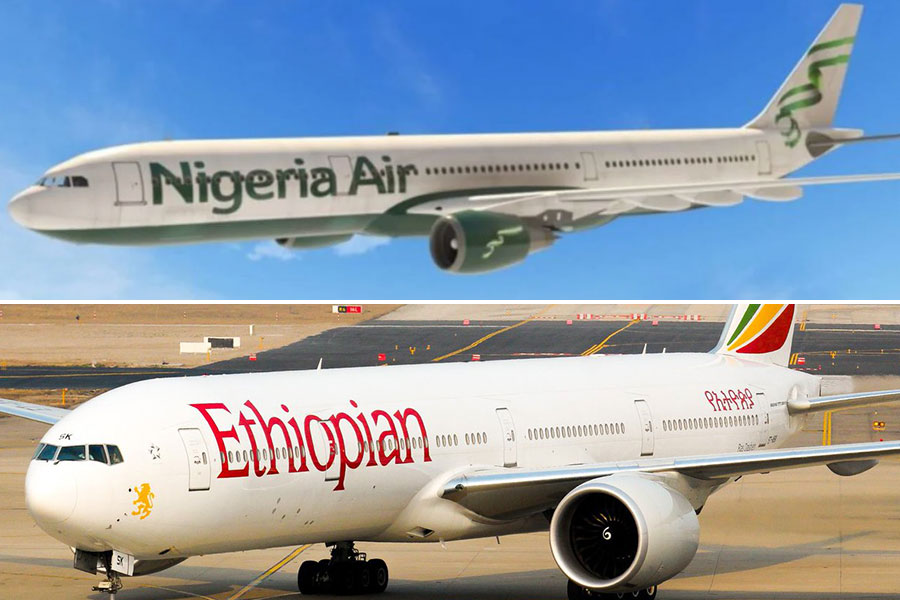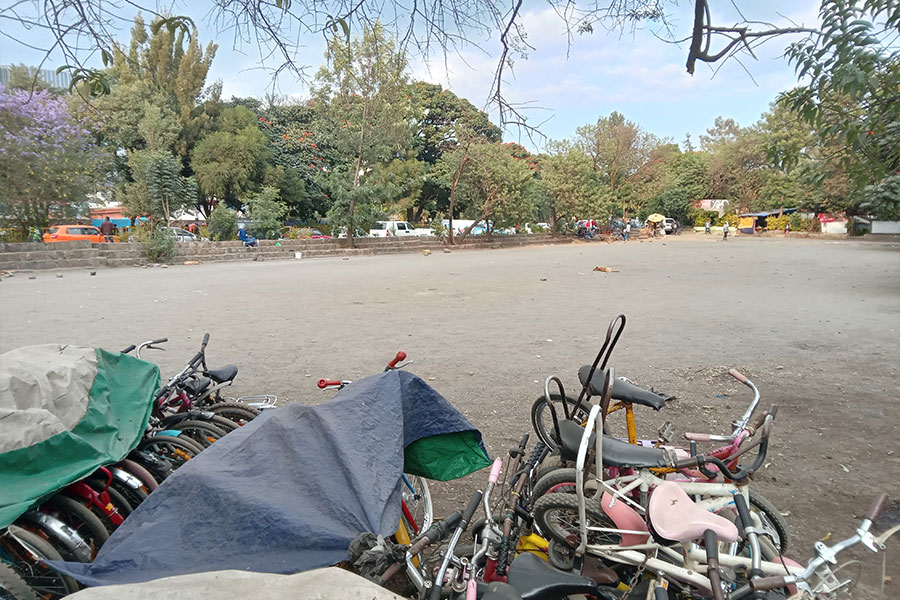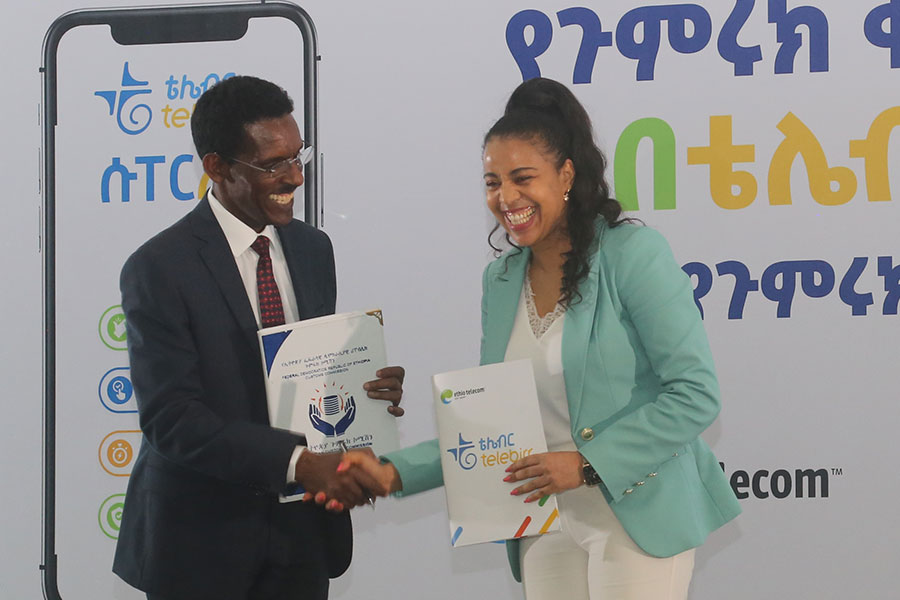
The Addis Abeba City Roads Authority has hired Chinese suppliers to acquire an intelligent transport system connecting the city bus service's fleet to a central database in real-time. The system is designed to track vehicles, electronic fare collections, passenger information and features on-board CCTV surveillance applications.
Two Chinese companies have been awarded contracts for the supply and installation of the system at the cost of 643.8 million Br. Qingdao Hisense Trans Tech and China Shandong International Economic & Technical Cooperation Group will install and manage the control and communications system targeted at modernising the operations of Anbessa City Bus Service Enterprise. The contract involves supplying hardware, such as cameras and communications equipment, relaying real-time information to the data centre, where information related to the fleet, passengers and road infrastructure is stored.
The introduction of the system is hoped to modernise operations of Anbessa Bus' fleet of 650 buses, serving an estimated 1.2 million commuters across 125 routes every day. It will change the paper-based and manual system in use, which exacerbate a poor scheduling system, says Mesekir Mandefro, communications director of the Enterprise.
The Chinese companies will have to complete the installation job in two years. However, they have committed to working on the management and system maintenance for a little over six years, disclosed Abel Altaseb, the project coordinator at the Addis Abeba City Roads Authority (AACRA). The Authority has undertaken the procurement process on the Enterprise's behalf.
The two companies signed the contract with the Authority last week.
Qingdao Hisense Trans Tech is a subsidiary company of Hisense Group Holdings. Incorporated in 1998, it has installed intelligent transport solutions in 169 cities across China. China Shandong International, incorporated in 1984, is active in constructing expressways in eastern African countries.
The project to modernise the eight-decade-old Anbessa Bus began five years ago after an Indian firm, Delhi Integrated Multi-Modal Transit System Ltd, was hired to design the system. Close to 47 companies responded to a bid floated by the Authority in May last year. Six, all Chinese suppliers, had submitted financial and technical proposals by last August. Alibaba Cloud Computing, a subsidiary of Alibaba Group, has also participated in the bid, partnering with another Chinese firm, Anhui Antai Technology. The two companies asked for a little more than one billion Birr to carry out the project, 360 million Br higher than the winning bid.
The companies awarded have agreed to get paid nine million Birr in Birr and 14 million dollars in foreign currency. Anbessa generates more than 432 million Br in annual revenues.
The Enterprise has an old and outdated fleet managment system, assigning a fixed number of buses to each route. On some routes, buses run almost empty, while on others, they carry passengers beyond capacity.
“There's a need for balancing the number of buses assigned to routes in different periods based on demand and seat capacity,” Mesekir told Fortune.
Anbessa Bus dispatches its fleet from five stations in Legehar, Merkato, Piassa, Mexico and Megenagna.
However, experts anticipate Anbessa's managment encountering challenges in implementing the system. With the poor digital infrastructure and weak internet connectivity prevailing in the country, expecting significant change may lead to disappointment, according to Amha Wondimu, the founder and chief technical officer of ZalaTech Website, a software development and hardware network installation company.
“They should implement as a pilot project in areas where there is better connectivity,” said Amha. “When the city has better and more reliable connectivity, the project can be scaled up.”
The system is part of a programme launched in 2016 and designed to improve mobility in Addis Abeba. Besides the modernisation of Anbessa Bus, the programme, financed by 300 million dollars credit from the World Bank, includes the construction of five road corridors in the capital. One of these road corridors connects Comoros St. (along the British Embassy) and Africa Avenue (Bole Road); it is to be upgraded with an outlay of 24.5 million dollars.
With a growing population and expansion of road networks, Addis Abeba is lagging behind the increasing demand for transport services. The modernisation of Anbessa's operations is a step in the right direction to solving the transport crisis in the city, focusing on mass transport, says Engida Tadie, lecturer of urban planning at Kotebe Metropolitan University.
Public transport services are provided by Anbessa, Sheger Bus, the Public Service Employees Transport Enterprise, and the light rail transit. Sheger serves over 229,000 passengers daily with 289 fleets of buses, while the Public Transport Enterprise caters to over 60,000 passengers with 254 buses. There are close to 10,000 minibus taxis operating in the capital.
However, Engida says Anbessa's fleet size is too small for the system to have a meaningful impact on the transport sector.
Last year, the Authority, on behalf of the Enterprise, floated a tender to acquire 100 low-entry buses with close to 20 million dollars loans obtained from the World Bank. The procurement process is ongoing.
PUBLISHED ON
Dec 25,2021 [ VOL
22 , NO
1130]

Fortune News | Jan 21,2023

Radar | Dec 12,2023

Radar | Apr 24,2023

Commentaries | Aug 16,2020

Radar | Jul 02,2022

Dec 22 , 2024 . By TIZITA SHEWAFERAW
Charged with transforming colossal state-owned enterprises into modern and competitiv...

Aug 18 , 2024 . By AKSAH ITALO
Although predictable Yonas Zerihun's job in the ride-hailing service is not immune to...

Jul 28 , 2024 . By TIZITA SHEWAFERAW
Unhabitual, perhaps too many, Samuel Gebreyohannes, 38, used to occasionally enjoy a couple of beers at breakfast. However, he recently swit...

Jul 13 , 2024 . By AKSAH ITALO
Investors who rely on tractors, trucks, and field vehicles for commuting, transporting commodities, and f...

Jun 28 , 2025
Meseret Damtie, the assertive auditor general, has never been shy about naming names...

Jun 21 , 2025
A well-worn adage says, “Budget is not destiny, but it is direction.” Examining t...

Jun 14 , 2025
Yet again, the Horn of Africa is bracing for trouble. A region already frayed by wars...

Jun 7 , 2025
Few promises shine brighter in Addis Abeba than the pledge of a roof for every family...